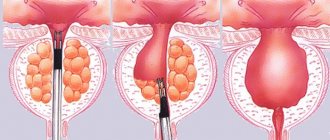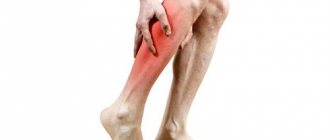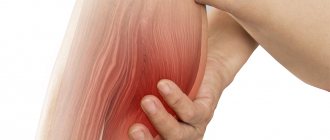Thursday, January 31, 2019
The phenomenon of urine retention does not occur in isolation, but as one of the signs of a certain disease of the urological, nervous or endocrine systems.
Ischuria occurs in representatives of both sexes, however, urinary retention in men, in particular in the elderly, is more common. This disorder is one of the accompanying symptoms of a well-known male disease - prostate adenoma.
Urinary retention is one of the pathologies associated with dysfunction of the genitourinary system. With this phenomenon, also called ischuria, patients encounter difficulties in the process of urination - they cannot normally, fully empty the bladder: after the completion of the act of urination, 50 ml or more of urine remains in this organ.
The phenomenon of urine retention does not occur in isolation, but as one of the signs of a certain disease of the urological, nervous or endocrine systems.
Ischuria occurs in representatives of both sexes, however, urinary retention in men, in particular in the elderly, is more common. This disorder is one of the accompanying symptoms of a well-known male disease - prostate adenoma.
Symptoms of urinary retention
The main symptoms of the pathology include the following signs:
- pain in the lower abdomen and pubic area;
- the presence of an extremely strong, sometimes unbearable urge to urinate;
- increased nervousness and psychomotor excitability;
- reduction in the process of urination up to its absence.
Other occurrences of urinary retention during urination are associated with diseases that cause ischuria.
So, with renal colic associated with the passage of a stone, the disorder is accompanied by pain in the groin.
In the case of urolithiasis or obstruction of the urethra, a likely symptom of the pathology is the presence of blood clots and a feeling of heaviness in the lower abdomen.
In the acute course of an incomplete pathology, the stream of urine is weak and thin; in order to pass urine, the patient has to strain hard and press on the lower abdomen. Since a large amount of urine constantly remains in the bladder, the process of urination does not bring this kind of relief.
Symptoms of chronic urinary retention develop gradually: first, the volume of urinary fluid decreases, a feeling of insufficient emptying occurs, and therefore the urge to go to the toilet becomes more frequent.
If you notice the first signs of urinary retention - stomach pain, difficulty urinating and often need to go to the toilet - consult a doctor immediately. It is important to determine the cause of the disorder as early as possible and begin treatment immediately.
Additional symptoms
Difficulty urinating is rarely the only symptom of a disease of the excretory system. Typically, patients have additional complaints that allow the doctor to identify the pathology or at least select suitable diagnostic tests.
Possible symptoms:
- The appearance of blood in the urine. Visible redness of urine may indicate injury, cancer, or urolithiasis.
- Pain during urination.
- Involuntary loss of urine.
- Pain in the perineum, lower back or abdomen.
- Increased body temperature.
- Expressed anxiety.
- Profuse sweating.
- Nausea and vomiting.
- Severe fatigue, weakness.
If the symptoms listed above appear, you should consult a doctor as soon as possible.
Causes of ishuria
The main causes of urinary retention are impaired urine outflow and improper functioning of the bladder due to a decrease in its contractility.
Sources of relevant reasons:
- diseases of the genitourinary system (adenoma and hyperplasia of the prostate gland, urolithiasis, stricture of the urinary canal);
- benign and malignant neoplasms (urethral tumor, prostate cancer);
- traumatic injuries of the genitourinary organs (mechanical);
- CNS disorders (spinal cord disorders, brain tumor);
- mental stress (they can cause reflex retention of urine);
- use of medications - sedatives, narcotics (pathology becomes a side effect);
- exposure to toxins.
Urinary retention and lack of urination have a different nature and character.
Mechanical blockade of the urethra is caused by strictures and obstruction of the urethra, stones, tumors, phimosis, swelling of the prostate due to cancer or adenoma.
A decrease in the contractile properties of the bladder is caused by muscular dystrophy of the organ and neurological diseases caused by dysfunction of the supply of nerves to its tissues.
The consequence of stress is inhibition of the reflex responsible for the act of urination.
Taking potent pharmaceuticals has a complex effect on the central nervous system, which impairs the functioning of the bladder.
| Code | Name | Price |
| 03.00 | Initial appointment with a urologist | 1,200 rub. |
| 03.02 | Repeated appointment with a urologist | 900 rub. |
| 03.03 | Initial appointment with a urologist (candidate of medical sciences) | 2,000 rub. |
| 03.04 | Repeated appointment with a urologist (candidate of medical sciences) | 1,200 rub. |
| 03.60 | Initial appointment with a urologist (MD) | 5,000 rub. |
| 03.61 | Repeated appointment with a urologist (MD) | 3,000 rub. |
| All prices of the men's and women's health clinic | ||
Blood in urine - hematuria - microhematuria - macrohematuria
The urine of a healthy person should normally not contain blood impurities, but patients often turn to a urologist specifically with the problem of hematuria - the appearance of blood in the urine.
If the number of blood cells in the urine is so large that a person can independently notice a change in its color, they speak of gross hematuria. Insignificant blood content, which is detected only in urine tests, is called microhematuria.
Regardless of the amount, the appearance of blood in the urine is evidence of the development of a pathological process and requires immediate contact with a urologist.
Causes of blood in urine
There are many diseases that are accompanied by blood getting into the urine. Most often, this condition develops in connection with pathologies of the kidneys, ureters, bladder or urethra. The most common factors for hematuria:
- Infectious diseases.
This factor is more often associated with cystitis and urethritis, which is especially typical for the female body. Often the cause of hematuria is tuberculosis of the kidneys or bladder. - Injuries.
A traumatic factor often causes gross hematuria, as tissue damage and rupture occurs in the kidney, bladder, perineum and urethral bulb. - Urolithiasis disease. Pathology is considered one of the most common causes of microhematuria. Salt calculi (as stones and other formations are called) contribute to the infection and mechanically irritate the mucous membranes of the ureters and urinary tract, which leads to the appearance of blood in the urine.
- Neoplasms.
The most dangerous tumors in this case are bladder or kidney cancer. Oncology may be transitional cell in nature or be a carcinoma or adenocarcinoma. Often in men, the appearance of blood in the urine is a symptom of prostate cancer. It is also impossible not to mention that the cause of hematuria can also be a benign tumor, for example angiomyolipoma, which occurs most often in women during pregnancy and is an accumulation of adipose tissue and blood vessels. - Diseases of the male reproductive system.
Conditions such as prostate adenoma or benign prostatic hyperplasia may well cause hematuria. - Kidney diseases.
This category includes pyelonephritis, glomerulonephritis, renal failure and papillary necrosis.
The factors listed above are only a small part of the pathologies that include hematuria in the list of symptoms.
Diagnosis of the causes of blood in urine
The most effective diagnostic methods used to identify the causes of hematuria:
- laboratory urine analysis: general, bacteriological, cytological;
- cystoscopy;
- intravenous urography;
- Ultrasound of the pelvis;
- computed tomography (CT).
The latter diagnostic method should be treated with caution, as it involves x-ray radiation. And although there is often information on the Internet about the safety of this technique, such statements cannot be taken at face value.
Treatment of blood in urine
Treatment of hematuria is developed strictly individually and is aimed at eliminating the cause of this symptom. Antibiotic therapy is most often prescribed. Pathologies such as neoplasms, urolithiasis, consequences of injuries, etc. suggest surgical intervention.
Purulent discharge in the urine - pyuria
The appearance of pus in the urine is called pyuria. The main cause of the condition is inflammation in the genitourinary system. The severity of pyuria directly characterizes the intensity of the inflammatory process.
A laboratory sign of pyuria is an increased content of leukocytes in the biological fluid (more than 3 million in one unit of volume), while a moderate number of these cells is the norm from a medical point of view. Visually, the patient observes significant cloudiness of the urine and the appearance of light flakes or threads in the sample. If you notice such symptoms, you need to seek help from a urologist as soon as possible.
Causes of pus in urine
Inflammation can be localized in the lower and upper genitourinary tract. In some cases, pus enters the urine as a result of a rupture of an abscess located in nearby internal organs (rare). The most common causes of pus in the urine:
- tuberculosis of the kidneys, genitourinary tract;
- cystitis;
- urethritis;
- acute pyelonephritis;
- prostatitis;
- acute orchitis;
- perforation of purulent formations of internal organs.
These pathologies develop especially actively against the background of reduced immunity, frequent hypothermia, regular overwork and hypovitaminosis.
Forms of pyuria
In the vast majority of cases, a laboratory urine test reveals a combination of pus in the urine with severe bacteriuria (increased bacterial content). If pathogenic microorganisms were not identified during the diagnostic process, they speak of aseptic pyuria, which usually occurs against the background of kidney tuberculosis and dehydration (dehydration) of the patient’s body.
To accurately determine the location of the inflammatory process, urologists use a three-glass urine sample. In this case, the patient is asked to donate urine alternately into three different containers.
Next, the samples are analyzed, which makes it possible to distinguish three forms of pyuria depending on the area of inflammation:
- Initial (initial) form.
If pus is detected only in the first sample, then the inflammatory process is localized in the lower parts of the genitourinary tract, namely in the area of the urethra. - Terminal (final) form.
It is diagnosed when pus is detected only in the last urine sample and indicates the presence of an infectious-inflammatory pathology of the prostate or seminal vesicles in men. - Total (full) form.
The detection of leukocyturia in all patient urine samples indicates a pathology of the renal tissue, most often localized in the area of the renal pelvis or the bladder itself.
Pathogenesis
Various variants of pathogenetic processes lead to impaired urination and urine retention.
The essence of mechanical ischuria (the most common type of pathology) is the fact of a barrier in the lower part of the urinary ducts. Phimosis, the release of stones from the bladder cavity, and prostate pathologies can block the passage of urine. Obstructions in the form of blood clots appear after surgical interventions in the bladder area or urethral bleeding.
In most cases, ischuria progresses slowly. The exception is the passage of a stone or blood clot - then delay and pain during urination occurs suddenly and sharply. This often happens at the time of urination and is accompanied by severe pain.
The pathogenesis of impaired urine outflow caused by dysfunction of the urinary ducts is more complex: in this situation, the fluid cannot come out not because of obstacles, but because the bladder has lost the ability to contract normally. Neurological and stress disorders lead to disruption of the opening of the urethral sphincter or suppress natural reflexes - this gives rise to ischuria.
Classification
According to the nature of the urinary outflow disorder, urinary retention can be complete (there is no way to urinate naturally) and incomplete (urine excretion occurs, but weakly, residual urine is inside the bladder).
In accordance with the etiology, clinical picture and duration, the pathology is divided into three types:
- Acute urinary retention. This option is characterized by suddenness and sharp pain. Its causes are predominantly mechanical in nature and consist of obstruction of the urethra by a calculus or blood clot. Less commonly, this type is caused by a neurogenic factor. The incomplete form is characterized by weak urination when the muscles are tense or when pressing on the lower abdomen.
- Chronic urinary retention. It occurs in parallel with urethral strictures, prostate diseases, and the growth of neoplasms of the genitourinary system. In incomplete form, residual urine can reach significant volumes (up to 1 liter). The full form occurs infrequently - it involves long-term catheterization.
- Paradoxical ischuria. As a variant of the pathology, it is less common and combines the impossibility of intentional urination with the constant uncontrolled outflow of a small amount of urine. This type of ischuria can be mechanical, neurogenic or pharmaceutical in nature.
The disorder, especially if left untreated, can change appearance and shape. Thus, acute pathology often becomes chronic, and incomplete ischuria becomes complete.
Diagnostics
Anyone who has encountered such an unpleasant problem cannot help but think about how to get rid of urinary retention, what to do in this case and where to start?
The fight against any pathology begins with an examination.
In our center, diagnostics are carried out comprehensively, using modern equipment and include a number of necessary procedures:
- initial physical examination by a urologist and conversation with the patient - palpation examination of the bladder and perineal area, taking into account the patient’s complaints and medical history;
- Ultrasound of the genitourinary system – detection of neoplasms, edema, adenomas and other disorders;
- neurological diagnostics - if there is a suspicion of a neurogenic or psychosomatic nature of the pathology, consult a nephrologist;
- endoscopic (instrumental) methods - cystocopy (detection of stones, blood clots, strictures) and retrograde cystourethrography (determination of the amount of residual urine).
An accurate diagnosis will allow you to obtain data about the characteristics, nature, type, specific development of the pathology and determine its treatment.
Diagnostic measures
To make a correct diagnosis, doctors need to carefully collect all complaints: determine the characteristics of urinary dysfunction, the frequency of occurrence and severity of symptoms. The specialist will also find out the history of the disease. It is important for him to know when the complaints first appeared, what could have caused the development of the pathology, and whether there is a connection between changes in the functioning of the genitourinary system and other diseases.
An objective examination in women includes examination of the lumbar region and pelvic organs, external genitalia, including by a gynecologist. During the examination, the doctor evaluates Pasternatsky's symptom - tapping on the lower back in the area of the projection of the kidneys to determine kidney diseases.
Patients must take a smear from the urethra to check for inflammatory diseases of the lower urinary tract. In addition, standard clinical blood and urine tests are prescribed, as well as additional studies to assess renal function and the content of pathogenic microflora. Such tests include determining the amount of daily urine, samples to assess the composition of urine, bacteriological culture to identify the sensitivity of pathogenic microorganisms to various antibiotics.
Among instrumental diagnostic methods, an important role is played by ultrasound of the kidneys and pelvic organs, as well as more detailed visualization of problem areas of the genitourinary system - CT and MRI.
If necessary, psychotherapeutic counseling is carried out: some disorders of the genitourinary system may be the result of psychological problems.
Therapeutic treatment of urinary retention
In our clinic, treatment is prescribed taking into account all the nuances of the patient’s pathology identified during the examination.
If it is possible to do without surgical intervention, individual conservative therapy is used:
- vitamins – patients with neurogenic ischuria are advised to use complexes of vitamins C and E, as well as vitamin preparations that have an antioxidant effect;
- physiotherapeutic treatment - warm compresses on the stomach and warm baths with chamomile decoction help relieve the symptoms of the disease; the exercise therapy complex helps strengthen and trains the pelvic muscles that control the functioning of the bladder, helps reduce the intensity of the urge to urinate; special therapeutic exercise procedures are used for pathologies caused by disorders of the prostate gland;
- traditional treatment - it is used as additional therapy under the strict supervision of a doctor and involves daily compresses of raw onions on the abdominal area, as well as treatment with a variety of herbs (use of chicory tincture, decoction of birch buds and dill seeds and other herbal preparations);
- homeopathy – homeopathic preparations are used in the form of aconite, belladonna, phosphoric magnesia and other remedies (their use requires special caution; if the precise recommendations of a specialist are not followed, it can be dangerous);
- drug therapy - determined by the specifics of the pathology (antibacterial drugs are used for acute inflammatory processes, diuretics are used for renal edema, sedatives are used for mental disorders, etc.)
The features of therapy are also determined by the age of the patient: for example, urinary retention in older people can be effectively treated with physiological procedures and herbal preparations.
Difficulty urinating in men in the morning
Difficulty urinating in men in the morning is most often accompanied by symptoms such as:
- Erectile dysfunction (erectile dysfunction);
- General malaise;
- Discharge from the penis.
If you have these symptoms, then most likely, difficulty urinating is caused by such a common disease as prostatitis. Prostatitis is a urological disease that is accompanied by inflammation of the prostate tissue. This disease occurs due to the presence of an infection that entered the body during unprotected sexual intercourse. also be caused by injuries to the pelvic organs, poor circulation , low physical activity, constant hypothermia and hormonal imbalances in the body.
Prostatitis is characterized not only by difficulty urinating in the morning, but also by the following common symptoms:
- Weakening of the immune system;
- Irregular sex life;
- Impaired blood supply to the urinary system;
- Chronic injuries of the urinary organs;
- Painful urination
- Dysuria (frequent urination with pain, burning and pain in the lower abdomen);
- Sexual disorders.
Surgery
If therapy fails to help, doctors resort to surgical treatment of the disorder.
First aid for full-form urinary retention (in acute cases) is possible by installing a urethral catheter - a special tube to allow urine to exit the bladder cavity.
The duration of this procedure depends on the severity of the pathology.
Urological surgeons also practice installing a urinary tube into the bladder by puncturing the abdominal wall (cystostomy) - this allows the outflow of urinary fluid to be restored. This technique is advisable if the cause of the inability to urinate is a stone stuck in the duct or a neoplasm has blocked it.
In these cases, the patient needs surgery to remove the corresponding barriers.
Complications and consequences
If you do not contact a specialist in a timely manner, the consequences of urinary retention can be the most tragic.
Advanced acute forms of ischuria lead to diseases such as hydronephrosis, acute renal failure, and chronic forms lead to chronic kidney diseases.
The consequence of stagnation of residual urine is tissue infection, resulting in the development of cystitis, pyelonephritis and other diseases.
Residual urine in the bladder is prone to crystallization - because of this, stones form in the organ.
In the absence of treatment, incomplete delay of the chronic type often transforms into a more severe one - complete and acute.
Prevention
Prevention of the development of ischuria is timely diagnosis and elimination of its causes.
To prevent the development of the disorder, contact a specialist at the first symptoms.
For the purpose of prevention, it is advisable for men over 45 years of age to undergo an examination by a urologist annually, as well as a urine test and ultrasound of the genitourinary organs.
The risk group also includes women who have given birth and had abortions many times, and those representatives of the fairer sex who have undergone gynecological operations or suffer from diseases of the pelvic organs. These women should also visit a urologist once a year.
Forecast
Modern technologies and advanced techniques used in our clinic guarantee favorable prognoses in the vast majority of cases of treatment of urinary retention.
In our center, ischuria is successfully treated - effective and timely treatment aimed at eliminating its causes gives positive results, and relapses of the pathology practically do not occur.
If you are alerted by the first alarming symptoms, do not waste time: call us, make an appointment - our doctors are always ready to help you!
Our doctors
Mukhin Vitaly Borisovich
Urologist, Head of the Department of Urology, Candidate of Medical Sciences
34 years of experience
Make an appointment
Perepechay Dmitry Leonidovich
Urologist, Candidate of Medical Sciences, doctor of the highest category
40 years of experience
Make an appointment
Khromov Danil Vladimirovich
Urologist, Candidate of Medical Sciences, doctor of the highest category
35 years of experience
Make an appointment
Kochetov Sergey Anatolievich
Urologist, Candidate of Medical Sciences, doctor of the highest category
34 years of experience
Make an appointment
FAQ
After ejaculation I want to pee, but I can’t. This is fine?
— During an erection, it is normally difficult to urinate. If the erection has passed, but it is still difficult to urinate, it is worth dealing with this in person.
Over the past two years, a not very pleasant problem has appeared. Two or three times during this period, before menstruation there is urinary retention and obvious swelling under the eyes. With menstruation, a lot of fluid is released. What needs to be examined and what is the reason?
- This is how premenstrual syndrome manifests itself. If these symptoms cause concern, then you can take diuretics on such days.
Ask a Question
1.General information
In everyday life, while everything is more or less normal with health and well-being, we do not think about the meaning of this word - “normal”. And it is certainly not customary to discuss such physiological processes as, say, defecation or urination. At best, we know that we need to consume more liquid, that defecation should be carried out at least once every 1-2 days, but urination... according to need, according to the situation, if possible?
Meanwhile, the human body is a well-thought-out and evolutionarily tuned machine, the normal (i.e., effective and uninterrupted) functioning of which requires a normal sleep and rest regime, certain values of atmospheric pressure, ambient temperature, clean air and drinking water, and also a regular supply of nutrients. The removal of waste metabolic waste (residual products of digestion and renal filtration of blood), useless and harmful compounds, infectious toxins is just as important and necessary as all of the above.
There is not and cannot be a strict, uniform norm for everyone: too much depends on diet, age, individual metabolic characteristics and other factors. However, in medicine there are still criteria for normal urination, incl. concerning its frequency and volume. The kidneys of an adult produce, on average, about 1.5 liters of urine per day, and the normal frequency is 4-8 times a day (and no more than 1 time at night, otherwise nocturia is diagnosed - a symptom of night urination).
It is well known that too frequent urination (pollakiuria) does not occur for no reason and usually serves as a sign of one or another urological pathology. However, this does not mean that the opposite principle is true - “the less often, the better.” If the frequency of urination is less than the lower limit of the conditional norm (see above), and the daily volume of urine excreted is reduced to 400-500 ml (oliguria), this tendency usually indicates serious pathological changes, even if there are no other symptoms or they are mild .
A must read! Help with treatment and hospitalization!











